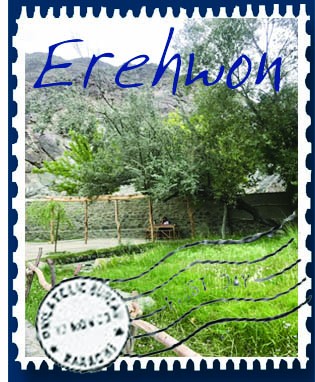
A look at the life of a young woman, born and raised in Gilgit-Baltistan and the future she hopes for

This evening our neighbour’s daughter, Nausheen walks into my Gilgit garden, a lovely, aquiline profiled, slender young woman studying at the Karakoram International University. She is deep into her environmental chemistry course, in love with her new learning. Rattled off the tip of her tongue, she has us in stitches with her bookish definitions, her quotations of Einstein, her renditions of Rumi translations. We are proud of the woman she is becoming. Strong, handsome, educated, her mind is full of dreams of her future.
Karakoram International University is the only public university in Gilgit-Baltistan and has transformed the culture of higher learning in the region since its establishment in 2002. Every morning, Nausheen walks out of her family farm, neatly dressed in one of her collection of seven university cotton suits. She walks down our sloping lane and catches the university bus to the campus. It is some fifteen minutes drive down the Karakoram Highway across the Gilgit river to the university. Her parents are farmers but she is a graduate student preparing for the life of a professional woman.
In the evenings when she returns from her academic work, she works on the farm, helping harvest ripe figs, cherries up on ladders or weeding the beds of vegetables and wheat, grown for sale and family consumption.
Among the Ismaili community of Pakistan, the pursuit of education is sometimes described as a crusade waged across generations. They are determined to educate their young, but the farms in my village rely on family labour all year round. So in this in-between stage until everybody is educated, I see that a double identity of farm and closeness to nature continues in a unique combination not seen in the city. In the morning in our village, professors from the university load up their car with seasonal produce to carry from farm to market where they are sold. In this way, a healthy and delightful busy-ness is everywhere.
It is evening in front of the glacial stream that flows through our garden. I am perched on a bench which I pat so Nausheen joins me. I appreciate her flawless skin, her sprightly frame and fine nose.
"Aunty I feel so depressed….my exams are tomorrow". Never one to be afraid of mere exams, I help her peel back layers of anxiety. And out pops a story that is troubling her in layer two of her being, beneath the exams. Her cousin, Waris, working and studying in Karachi, has been taken under the wing by a wealthy Sindhi lady who happened to be impressed with him during a work encounter. "The Sindhi aunty arrived with him in our village, and announced to Waris’s father, this young boy is now my son! He is so honest and trustworthy…I’m taking him under my wing". Nausheen relates how the cousin now resides in a house in Karachi’s DHA, waking when he pleases and doing what he likes as a guest of Sindhi aunty. An inexplicable stroke of fortune, spelling only comfort and ease.
"Some people get everything for nothing" Nausheen comments. Taken aback, I retort, "zero is what I give this story - why would anyone become dependent on someone else’s whims and wishes. Sindhi aunty will drop him like a hot brick one day, you’ll see… Now you – you must become a woman who stands on her feet, respected for her knowledge and profession."
Nausheen laughs as she relates her cousin’s rags to riches story, but I know she is only wondering about her own fortunes. She sees my sceptical face, and breaking the dialogue walks to my blossoming roses, bending to smell them. I burst out, "if you were my daughter, I’d give you a good smack, and forbid you from coming to visit me if pies in the sky are what you dream about – and – don’t smell my roses!".
Also read: The eternal and the mortal
Behind my embarrassing outburst of censure, is a third layer of young anxiety in Nausheen’s heart I know. She only confided it to me days ago. She is in love with a Shina boy from Gilgit, and hers are Burusho parents from Hunza. A star crossed love that she doesn’t know what to do with. Will she move on from this boy, dreaming the dreams of youth, will she challenge this taboo with her farmer mother and her father working hard at a petrol station in Chilas?
I can only see the promise of this beautiful young person, of the possibilities that are waiting to emerge in this bright mind and her joy of life. In my heart, I fear what the world might do to these bright possibilities, and I promise myself to watch over her; nurture her dreams and never again tell her not to smell my beautiful roses.